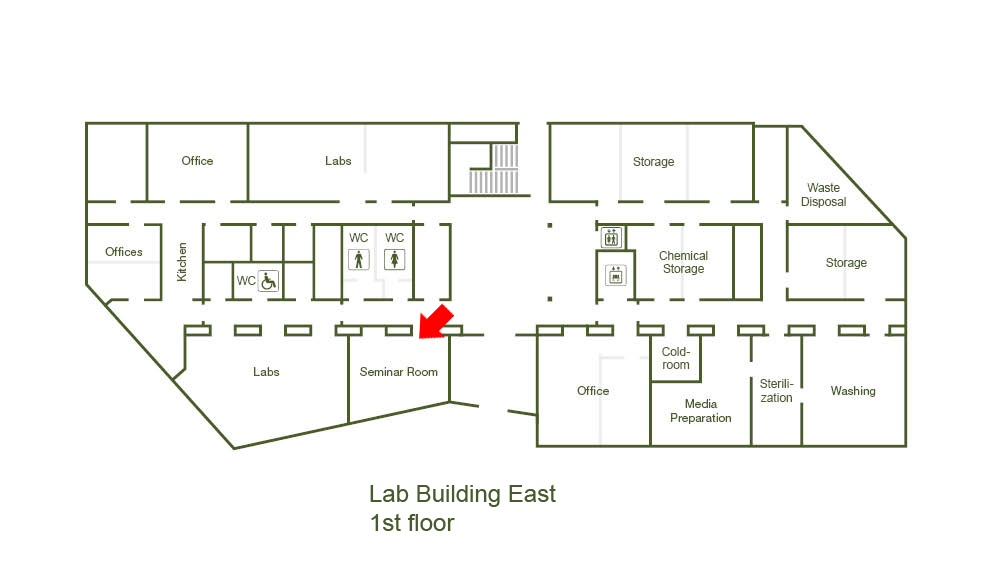The regulatory principles of embryonic stem cell differentiation
Date:
Thursday, December 20, 2018 13:30 - 14:30
Speaker:
Martin Leeb (MFPL, University of Vienna, Vienna Biocenter (VBC))
Location:
Seminar Room, Lab Building East
Series:
Life Sciences Seminar
Host:
Simon Hippenmeyer
Contact:
MARR Lena

Cell fate changes during embryonic development require the irreversible rewiring of transcription factor networks to establish and stabilise lineage identity. We use embryonic stem cells as a powerful model to study cell fate decisions.The identity, function and interactions of the key transcription factors that maintain ES cell identity are well understood. Much less understood is how this highly recursive transcription factor network is dismantled to allow the exit from pluripotency and proper progression towards differentiation.Haploid ES cells provide a platform for unbiased random mutagenesis based screens in mammalian cells. By combining powerful improved mutagenesis methodologies and efficient protocols for transposon integration mapping, we have successfully performed a saturation screen to identify the key players in the exit from pluripotency. Knowing which genes are involved in ES cell differentiation does of course not mean understanding what these factors actually do and how they cooperate in mediating differentiation. To address this question, we are following a systems biology approach by analysing the impact of 74 differentiation delaying mutations on the transcriptional state of ES cells during the exit from pluripotency. Integrated analysis of these datasets have facilitated the prediction of genetic interactions and the derivation of an extended pluripotency specific genetic network, for which we can show relevance in vivo. Surprisingly, our list of candidate genes contained several genes that are involved in the regulation of RNA homeostasis. Specifically, several components of the nonsense mediated mRNA decay (NMD) cascade were found among the top candidates. Indeed, genetic deficiency for NMD factors results in differentiation delays without interfering with self-renewal. NMD is a translation coupled mechanism. Intriguingly, we find that NMD itself regulates translation initiation and propose that the deregulation of both transcription and translation in NMD mutant cells is responsible for a failure to properly execute the differentiation programme.